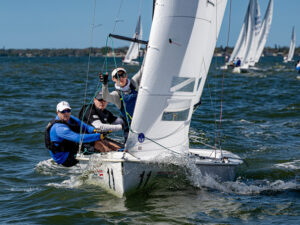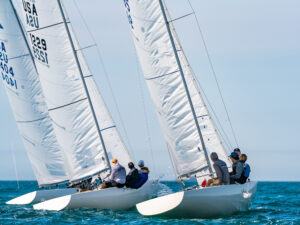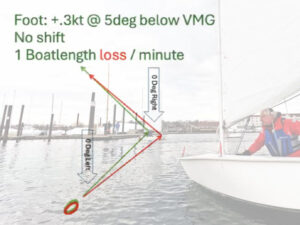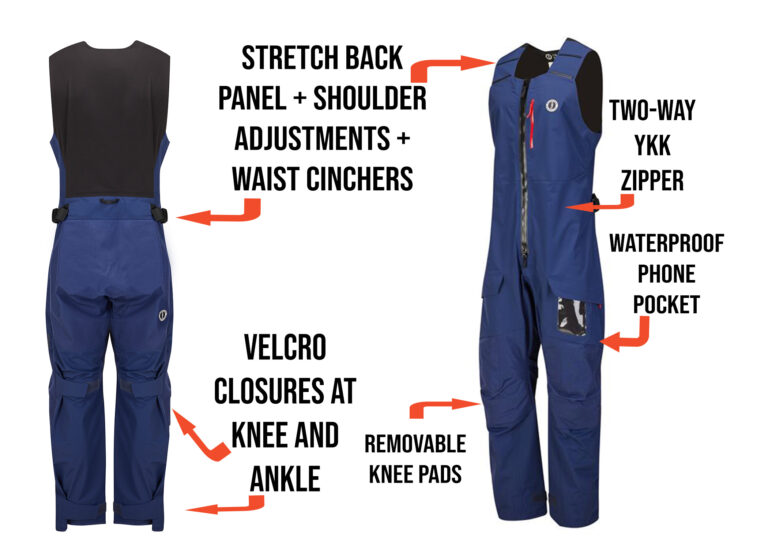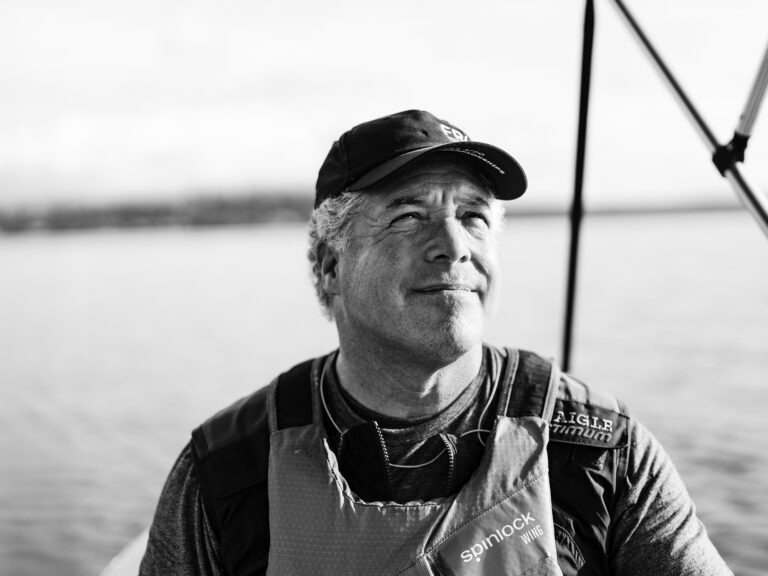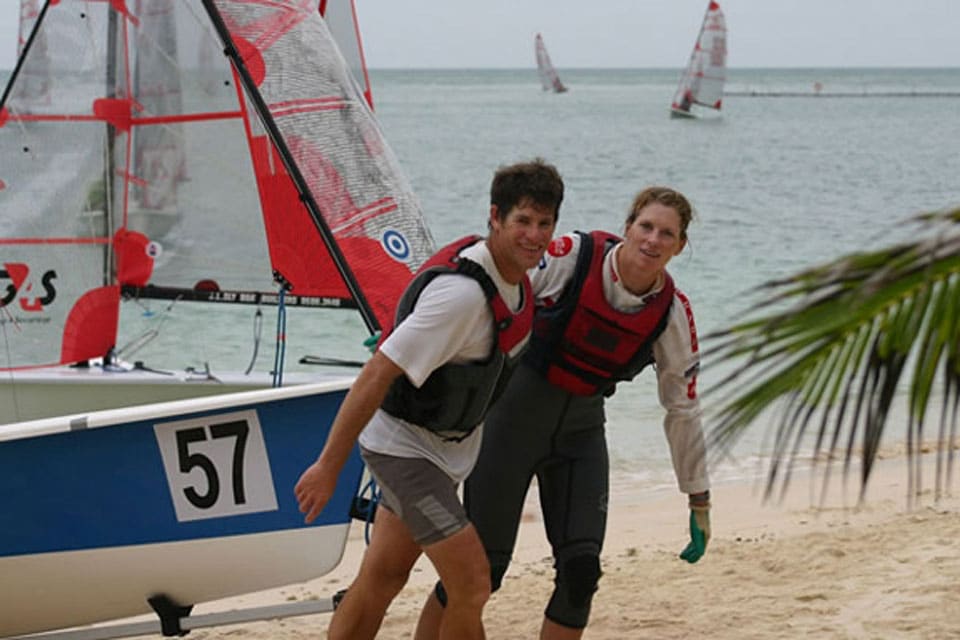
Jonathan and Libby McKee
Sailing is a humbling sport at times. One of my recent columns in Sailing World (“McKee’s Minute”) was devoted to preparing your boat for the coming season, and I recently had firsthand experience on that point. My wife Libby and I have raced Tasars together for the last 20 years, but recently we have not sailed as much, as we travel more and raise our family. So it was with some trepidation that we pulled the old girl out for a frostbite race on Puget Sound last weekend. It was cold and windy, but we got her rigged up, bundled up, and headed out. Everything seemed great at first. It was cold but as we sheeted in to go upwind the boat felt great, and it reminded us how much we love sailing the Tasar, even in the dead of winter.
As we lined up with another boat, something did not seem quite right. Then I noticed that our topmast section had a big crack in it. We limped back to the dock and borrowed another one, then set back out. All was good for a while, as we lined up for some practice starts in the 20-knot winds.
We got a good start in the race, controlling the windward end. By now the wind was closer to 25.
As we went for the first tack, I turned the boat before Libby had uncleated the jib, and sure enough, over we went. On the way down, Libby landed on the boom, which promptly broke in two. So now we were swimming in Puget Sound (47 degrees) with a broken boom. When we righted the boat, we noticed that the rudder was missing. I had forgotten to tie it in…
We lowered the crazily flapping main, then the jib, and took a tow from the rescue boat. Then my friend Fritz sailed up in his 505, with our rudder in hand. What luck! He handed it off in a heroic sail by, and we proceeded to tow to shore, tail firmly between our legs. Then we realized we had lost our whisker pole too . . .
Back ashore we surveyed the damage. In half an hour of sailing we managed to break or lose three of our four spars and lose our rudder. Thanks to Fritz we got our rudder back, but nonetheless it had been a humbling experience. The next day I ordered new spars, which I been meaning to replace anyways, and we will be back on the water for this Sunday’s frostbite, slightly chastened, somewhat poorer, but no less enthusiastic!
So here are a few lessons from the day that apply, especially if you’re frostbiting this winter, or pulling the cover off in the spring after a few months of hibernation.
- Tie in your rudder or have a good rudder lock.
- Check your spars for any sign of weakness, especially if they are old.
- Don’t tack until you hear the click of the jib sheet coming out of the cleat.
- Make friends with your rescue boat drivers, and those that recover and return your gear.
- Fix it and get back out there.

